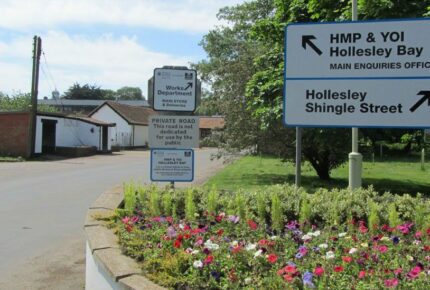

Recent figures indicate a notable increase in incidents of land banking fraud in the UK, making it one of the more pressing financial crimes today. If you find yourself arrested or charged with this offence, try to seek the assistance of a knowledgeable solicitor as early as possible to protect your rights. This article provides essential information to help you understand your situation, addressing common questions and exploring possible defences you might consider. We also discuss the bail process for those charged with this type of fraud, offering guidance on what you might expect. By equipping yourself with the right information and professional support, you can effectively manage the challenges ahead.
Do I need a solicitor for land banking fraud?
Facing allegations of land banking fraud can be daunting, leaving you to wonder if hiring a solicitor is necessary. Land banking fraud involves marketing plots of land to investors with promises of significant returns, usually without any real prospect of development or value increase. Such cases can be complex, involving intricate details about land ownership, investment details, and potential misrepresentations. Like other types of fraud, land banking fraud will most likely be prosecuted under the Fraud Act 2006.
Hiring a criminal defence solicitor with expertise in fraud cases is highly recommended for several reasons:
- Land banking operations often involve navigating complex legal and regulatory frameworks. A solicitor can help you understand the nuances of these regulations and how they apply to your situation.
- An experienced solicitor ensures your rights are protected throughout the legal process. They can guide you on interactions with law enforcement and how to handle requests for interviews or documentation.
- A solicitor skilled in fraud cases can assess the evidence against you and identify weaknesses or inconsistencies in the prosecution’s case. They will work to build a compelling defence, potentially negotiating reduced charges or even dismissal.
What are possible defences for land banking fraud?
A skilled criminal defence solicitor can help assess your situation and determine which defence strategies might apply to your case. Some options include:
- Lack of intent to defraud: For a fraud charge to stick, the prosecution must prove that you intended to deceive or gain by dishonest means. If you can demonstrate that you genuinely believed in the investment and did not intentionally mislead investors, this might be a valid defence.
- Truth of statements made: If the information provided to investors was accurate and can be substantiated, it might be possible to argue that there was no deception involved. Evidence such as appraisals, expert assessments, or official documentation supporting the viability of the land for development could be vital.
- Due diligence: A defence based on due diligence may be relevant if it can be shown that you took necessary steps to verify the investment opportunity’s legitimacy. This could involve showing that you sought professional advice or conducted a thorough investigation into the land’s value and development potential before presenting it to investors.
- Acting under duress: If you were forced into committing acts that you would not have otherwise engaged in willingly, this could potentially mitigate culpability.
- Procedural errors: There might be a defence surrounding procedural errors made by law enforcement. If your rights were violated during the investigation or if there were significant lapses in the processes followed by the authorities, this might affect the admissibility of evidence or the validity of the charges.
Will I get bail for land banking fraud?
Bail allows you to remain out of custody while awaiting trial, under certain conditions set by the court. Whether or not you receive bail for land banking fraud will depend on several factors weighed by the magistrates or judge. Here is what might be considered in your bail application:
- Seriousness of the offence: Land banking fraud is a form of investment fraud where plots of land, often worthless or misrepresented as suitable for development, are sold at inflated prices. Due to the financial harm this type of fraud can cause to victims, the prosecution may argue that the charge is severe enough to warrant remand in custody.
- Risk of failing to surrender: The court will assess the risk of you failing to surrender to custody. If there is a concern that you might abscond, especially if you have significant ties abroad or a history of not attending previous court hearings, this might weigh against you being granted bail.
Additional considerations include:
- Risk of reoffending: The court will consider whether there is a likelihood of you committing further offences if released on bail.
- Interference with witnesses or evidence: If there is any indication that you might interfere with the investigation, intimidate witnesses, or destroy evidence, this may impact the decision.
- Your character and community ties: The court will look at your personal circumstances, including your character and connections to the community, which may influence the bail decision.
Will I have to go to court if I’m arrested or charged for land banking fraud?
If you’re facing charges related to land banking fraud, you may wonder if you will have to go to court. In the UK, facing criminal charges offers several possible routes before court becomes a necessity. The decision to take a case to court involves several factors and is primarily influenced by the Crown Prosecution Service (CPS), which determines whether there is sufficient evidence for a “realistic prospect of conviction” and whether it is in the public interest to proceed with a trial. If these criteria are met, it is likely that your case will be brought before a court.
Court may seem unavoidable if:
- The fraudulent activity has affected a large number of individuals.
- The financial losses incurred are substantial.
- There is strong evidence linking you directly to the fraudulent scheme.
That said, not all cases lead to court. Alternatives such as out-of-court settlements or plea bargains might be explored if the circumstances allow. Your solicitor can negotiate on your behalf, potentially reducing charges or sanctions, provided there is room for such discussions.
If the case does go to court, it could be heard in either the Magistrates’ Court or the Crown Court, depending on the severity and complexity of the charges.
Will I go to jail if found guilty of land banking fraud?
If you are found guilty of land banking fraud, it is possible to face a custodial sentence. However, whether you will go to jail depends on the specifics of your case, such as:
- The amount of money involved: Larger sums of money typically result in more severe penalties.
- The duration of the fraudulent activity: A longer period of fraudulent activity can lead to harsher sentencing.
- Your role in the fraud: Being a key organiser or instigator may result in a more severe penalty compared to a minor role.
- Previous criminal record: A criminal history may influence whether a custodial sentence is imposed.
The court will consider these factors, alongside any aggravating or mitigating circumstances. Aggravating factors, such as a breach of trust or victimising vulnerable individuals, may increase the likelihood of a prison sentence. Conversely, mitigating factors, such as cooperation with authorities or demonstrating remorse, could potentially reduce the severity of the sentence.
It is important to engage with a knowledgeable criminal defence solicitor if you are facing charges of land banking fraud. They can provide guidance specific to your case and help you understand the potential outcomes.
Will I go to jail if it’s my first offence of land banking fraud?
In determining whether you might go to jail for a first offence of land banking fraud, several key factors are considered. For the most part, courts will consider how serious the fraud was, including the amount of money involved and the number of individuals affected. They will also consider your role in the fraud and whether you took charge of the crime’s operation. The level of harm caused will also be taken into account.
The fact that it is your first offence may mitigate (reduce) the sentence, but it cannot always mean that you do not go to jail at all.
Can I get legal aid for land banking fraud?
In England and Wales, Legal Aid is available to help those who cannot afford legal representation in criminal cases. However, it is not granted automatically. Instead, you must satisfy both a means test and a merit test to qualify for assistance.
The means test assesses your financial situation to determine whether you genuinely require financial support for your legal case. Several factors are considered in this assessment, including your income, savings, and property. The merits test looks at whether the offence is serious and may result in severe penalties, which is indeed the case with land banking fraud.
Where to get more help
By seeking the guidance of an experienced criminal defence solicitor, you can ensure that your land banking fraud case is handled with expertise and care. A knowledgeable solicitor will work tirelessly to protect your interests and strive for the best possible outcome. If you need professional legal assistance, do not hesitate to get in touch with Stuart Miller Solicitors for a free consultation.
OUR COMMITMENTS TO YOU:
-
Responsive
A legal expert will consult you within 24 hours of making an enquiry.
-
Empathetic
We will always treat you with trust, understanding and respect.
-
Specialised
Your case will be handled by an expert who specialises in your type of offence.
-
Proactive
We will take early action to end proceedings as soon as it is practically and legally possible to do so.
-
Engaged
You will be kept updated on your case at all times. We will provide a named contact available to answer your questions.
-
Caring
We understand this is a difficult and stressful time for you and your family. Our team will support you every step of the way.
-
Tenacious
We will never give up on your case. We fight tirelessly to get you the best possible outcome.

